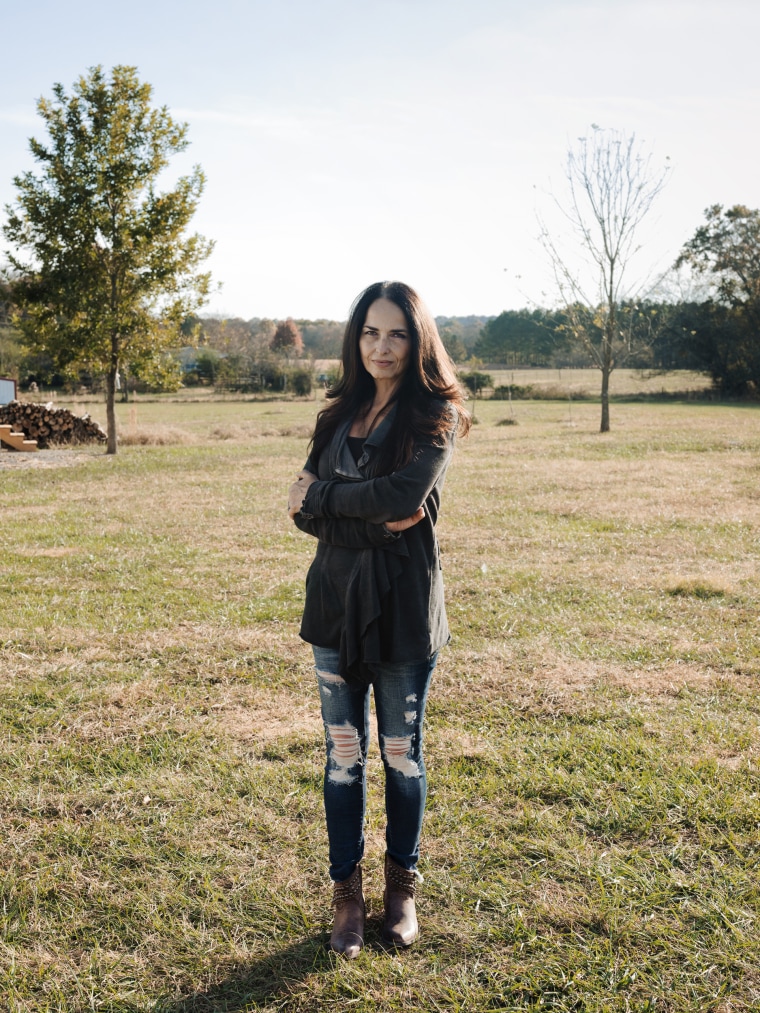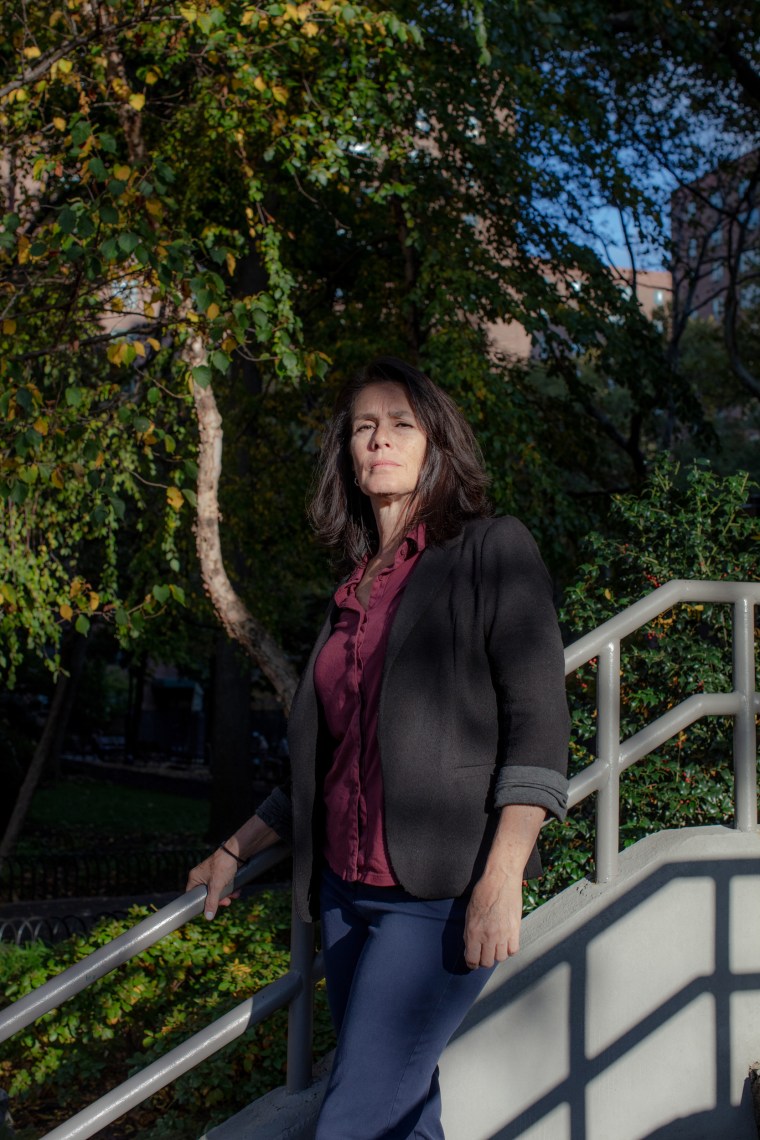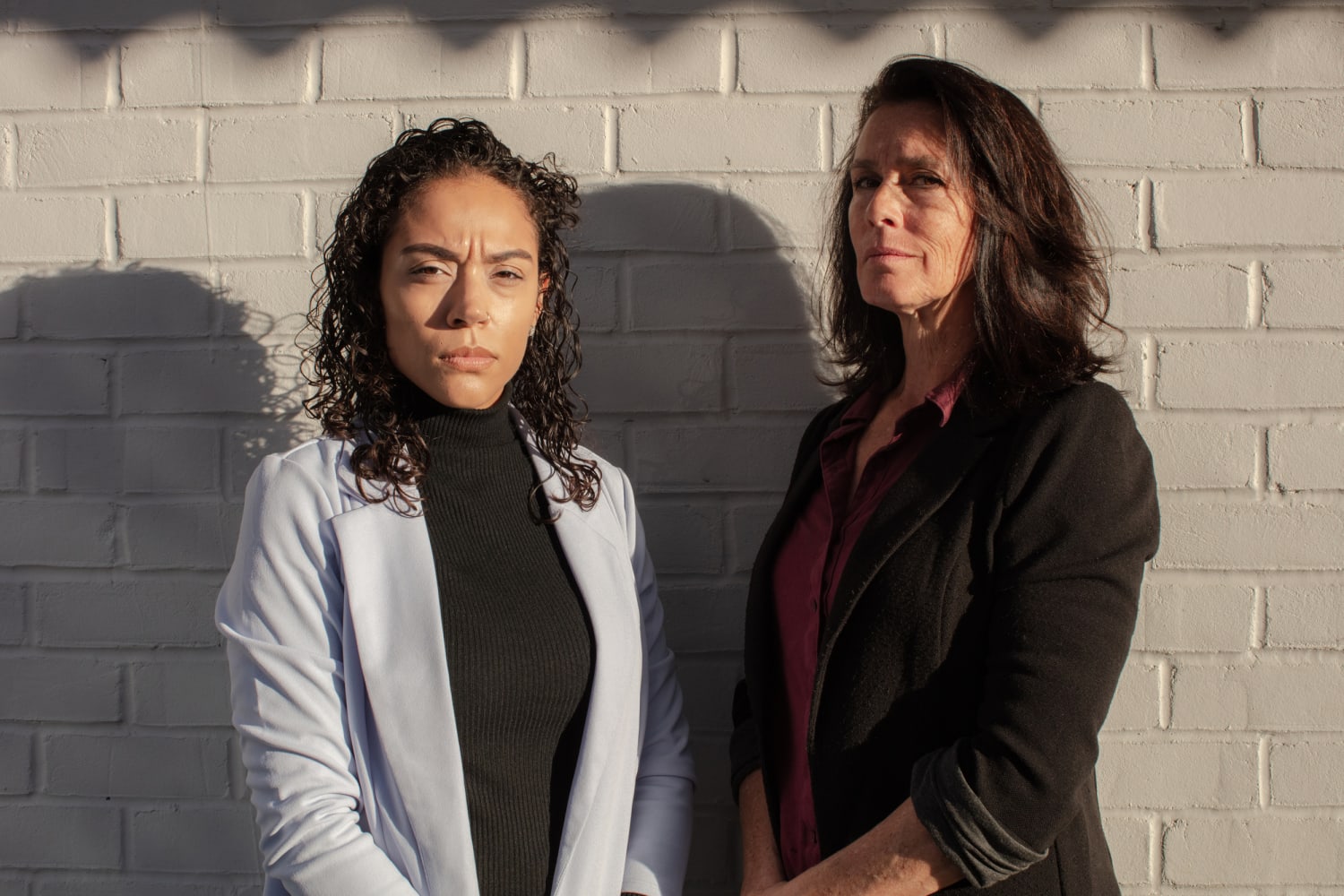Roughly 1 in 7 police officers in the U.S. are women, according to federal data, and the Justice Department is trying to learn why more women aren’t drawn to law enforcement.
Officials tapped Jennifer Rineer, an organizational psychologist, to lead the study, which is still in process. Through interviews with female officers in 29 states, Rineer found that sexual harassment was a major barrier to attracting more women to careers in policing.
“Top leadership all the way down needs to say, ‘This is unacceptable,’’’ said Rineer, who works at RTI International, a nonprofit research institute.
The police departments reviewed by NBC News have policies that ban sexual harassment and require supervisors to report claims of abuse. But female officers say the rules often aren’t followed or enforced.
Some of the women who tried to file complaints with internal investigators said their allegations were never documented or probed. Others said that after they filed internal reports, the information spread to other officers. Some said that when they told their superiors about sexual misconduct, they were warned to stay quiet.
Jim Pasco, the executive director of the National Fraternal Order of Police, the country’s largest police union, defended the way departments handle sexual harassment complaints, saying they are often “he said, she said” cases.
“You don’t ruin someone’s career without evidence to substantiate ruining that person’s career,” he said.
Even the LAPD’s Internal Affairs Division, tasked with investigating officer misconduct citywide, has had its own issues with supervisors’ shrugging off sexual harassment complaints from within, according to a lawsuit filed by a former officer, Linda Allstot.
Allstot had been with the unit for seven years when, she says, a supervisor, Lt. Wayne Lightfoot, began complimenting her body and inviting her on trips to places like Cabo San Lucas, Mexico.

Allstot’s boyfriend was on the force, but she refused to reveal his identity when Lightfoot asked her.
Incensed, Lightfoot used his power as a lieutenant to have Allstot put under surveillance, she said in court papers and in an interview.
“This is something that I haven’t ever seen happen,” Allstot said. “The whole thing was a nightmare.”
Her boyfriend was ultimately outed, she said, and Lightfoot’s advances continued. Over the next few months, Allstot was written up for infractions that she said never happened, such as leaving her gun on her car seat.
She told a female deputy chief what was going on, but a complaint was never filed internally. Instead, Allstot said, she was again placed under surveillance.
“I remember looking out the window and seeing a surveillance van, and my daughter’s looking out the window, and she says: ‘Why are they following you? Aren’t you the police?’” Allstot said, breaking down in tears. “That was the hardest thing to have to explain to a child, and that stuck with me forever.”
Allstot sued the city and Lightfoot in 2016. A month before her trial, Lightfoot retired.
The city of Los Angeles paid Allstot $1.8 million. A few months later, another female officer sued the city alleging sexual harassment by Lightfoot. Her case was settled for $75,000.
Lightfoot didn’t respond to requests for comment. In court papers, he denied the allegations.
‘No objective process’
In recent years, an increasing number of mayors have tapped women to lead big-city police departments, among them those in New York; Sacramento, California; and Louisville, Kentucky.
The NYPD says its share of female supervisors has risen to 12%, which is higher than the national average of 9%.
But the careers of some in the small group of women who managed to rise through the 55,000-person department and achieve a three-star rank — a position held by fewer than 16 people — ultimately ended in lawsuits and resentment.
Female officers didn’t cross into the department’s layer of top management until 2003, when Joanne Jaffe was appointed a three-star chief to lead its public housing officers. She was the only one for over a decade. By 2018, five women had held the prestigious rank.
Over the next two years, three of the five left their posts and sued the department alleging widespread gender discrimination.
Jaffe was one of them. So was Lori Pollock.
Pollock started with the department during the height of the city’s crack epidemic in the 1980s. As a rookie, she gravitated toward the toughest assignments, working as a plainclothes officer and rising through the ranks as one of the few women to help run narcotics and internal affairs and then overseeing hundreds of detectives in Manhattan.

“I loved being a police officer, every stage, every rank. I loved it,” Pollock said.
Regardless of her position, she said, she always noticed a peculiar trend. “No matter how qualified I was, I wasn’t allowed to go in there until the female spot opened up,” Pollock said.
In 2018, Pollock became a three-star chief and was appointed to run the bureau in charge of lowering crime rates. A year later, with a new police commissioner, Dermot Shea, at the helm, Pollock asked to fill the position he had just left as chief of detectives. No woman has ever held the role.
“I had the experience and the credentials,” Pollock said. “Instead of getting chief of detectives, I got demoted.”
She was moved to an office that focuses on collaborating with community organizations, where she had to report to a freshly hired male bureaucrat who had never been an officer. Even worse, she said, the department gave her a team of only four to supervise (in her previous role, she was supervising 300).
Pollock believes she was skipped over because she’s not a member of the department’s “boys’ club.”
“You’re just going to wave your hand and destroy my career,” Pollock said. “There’s no objective process.”
Pollock settled in May for $367,000. Another former NYPD three-star chief got a $330,000 payout. Jaffe’s suit, which also alleges that she was forced to retire because she is white and over 58, is still in litigation.
Shea, who is now an NBC News law enforcement analyst, declined to comment. In court papers, he denied the allegations.
Pollock, now retired and living in New York City, said that after she filed her lawsuit, the vast majority of her colleagues stopped talking to her. Even high-ranking women in the NYPD iced her out.
“You didn’t believe that this could be happening until it happened to you,” she said.
Source: | This article originally belongs to Nbcnews.com








